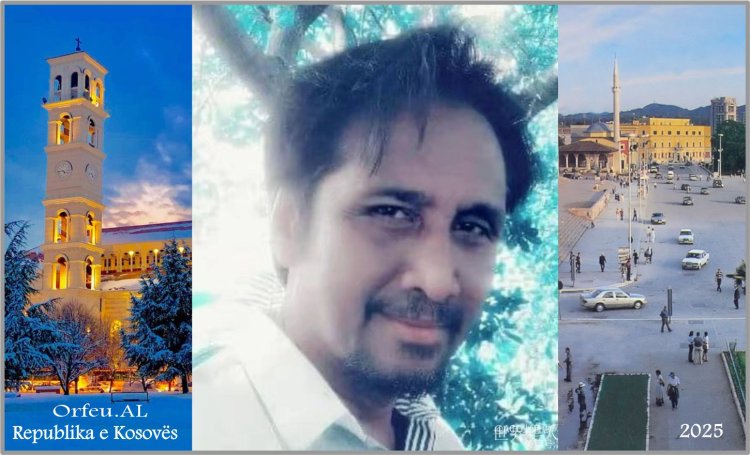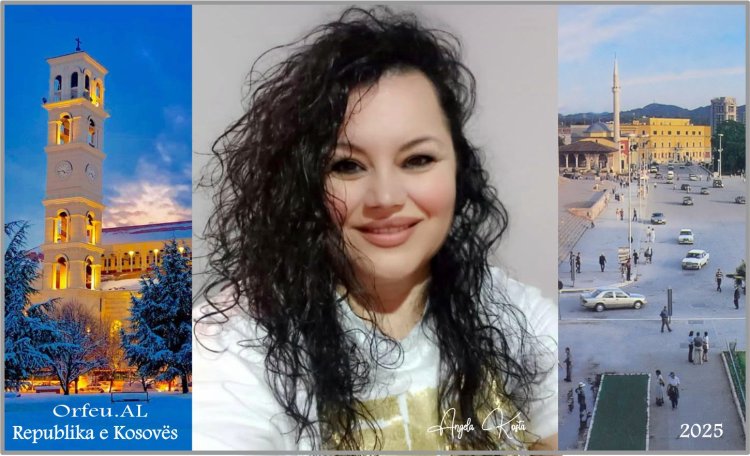"BLACK PSALMS FROM GAZA: ELEGY FOR TORN SANDS"
-By: RIZAL TANJUNG
-I-
At the edge of Jerusalem's peeling walls,
the sun trips over fragments of concealed history.
Desert winds carve wounds into the sand's back,
and Gaza—a fistful of ash at the map's edge
becomes a footnote in the geography of power.
Children born from wombs of darkness
learn alphabets from gunpowder residue,
drawing stars not in the sky
but on prison walls—with blood.
-II-
Some write love poems behind windows,
while generals chart missile trajectories
with crocodile-leather pens.
In air-conditioned rooms, decision-makers
sip wine from bullet-shaped glasses,
matching strike coordinates
to national anthem rhythms.
Diplomacy is now just expensive perfume
sprayed on corpses.
-III-
Orders are incantations
written in sand with bayonets.
Peace is merely a probability
when the other voice falls silent—
or is silenced by landmines.
Behold the city:
rooftops like petals shed by seasons,
mosques as godless dark caves,
hospitals turned labyrinths of bone and steel—
nothing heals from explosions here.
-IV-
Corpses don't need passports.
Crushed children have no ideology.
The mother digging earth with bare hands
isn't choosing political parties—
she's searching for fragments of her child's body
buried with dreams of school.
Is silence defeat?
Or did the dead depart too quickly
to know which side they stood on?
-V-
Behind five-star hotel curtains,
"peace" is recited like a prayer stripped of meaning.
Meanwhile in Gaza,
the sky grows weary of being sky—
it becomes the ceiling of an open morgue.
They say: "We're approaching a ceasefire."
But victims' wristwatches have cracked,
their seconds ticking only one note:
a scream too late to record.
-VI-
Where no signatures exist,
bombs become punctuation,
bullets turn capital letters.
Progress reports are printed from city ruins.
"Targets achieved," says an officer,
pointing to schools now steel skeletons.
In their offices, victory
is a bloodstained PowerPoint slide.
-VII-
Every faction lifts God like a weapon,
stuffing Him into slogans,
folding Him into hasty prayers.
God—if He hasn't fled—
may be crouching under the last olive tree,
weeping as His name is stamped on mortar shells
and loaded into drones.
Does He still hear?
Or have propaganda blasts deafened His ears?
-VIII-
Is this war for survival,
or just ensuring more will die?
Is this land so sacred
it requires blood as holy water?
Can victory still be celebrated
when all that remains is silence
and rubble whispering:
"No one returns from here human"?
-IX-
Gaza is now an apocalypse almanac,
each day opened with screams,
closed with body count reports.
Rain no longer falls from skies
but from drones—
dripping fire and metal onto pomegranate orchards.
No poem is long enough
to suture this land's wounds.
No sermon sacred enough
to lift lives from debris.
-X-
If peace is a perpetually broken promise,
then war is eternal employment
with monthly KPIs.
Gaza isn't a city—
it's Death Incorporated:
Explosives Division, Trauma Department,
CEO: Fear.
Here, truth is buried alive
between melted cables and tiny bones.
The dead never get to ask:
"Did anyone fight for us?
Or were we just numbers on news infographics?"
Written from land still smelling of war's ashes,
West Sumatra, 2025
RESUME:
Bionarasih Rizal Tanjung, born in Padang City, West Sumatra Province, is a well - known director, artist, poet, and critic in West Sumatra Province. He embarked on his artistic career in 1975 and founded the Moeka Theatre (later renamed the Old Track Theatre) in 1979. As a director, he has staged more than 60 theatrical works across Indonesia. Moreover, he is also actively engaged in writing scripts, short stories, poems, and cultural articles. Rizal has led several art institutions such as the Moeka Theatre, the Old Track Theatre, and FK - METRA in Padang, and has participated in the work of the art committee. He often serves as an advisor, judge, and art curator for government agencies and cultural organizations. His dedication has made him an important figure in the protection and innovation of Minangkabau culture and art.
Prepared by: Angela Kosta, journalist, poet, essayist, publisher, literary critic, editor, translator, promoter



